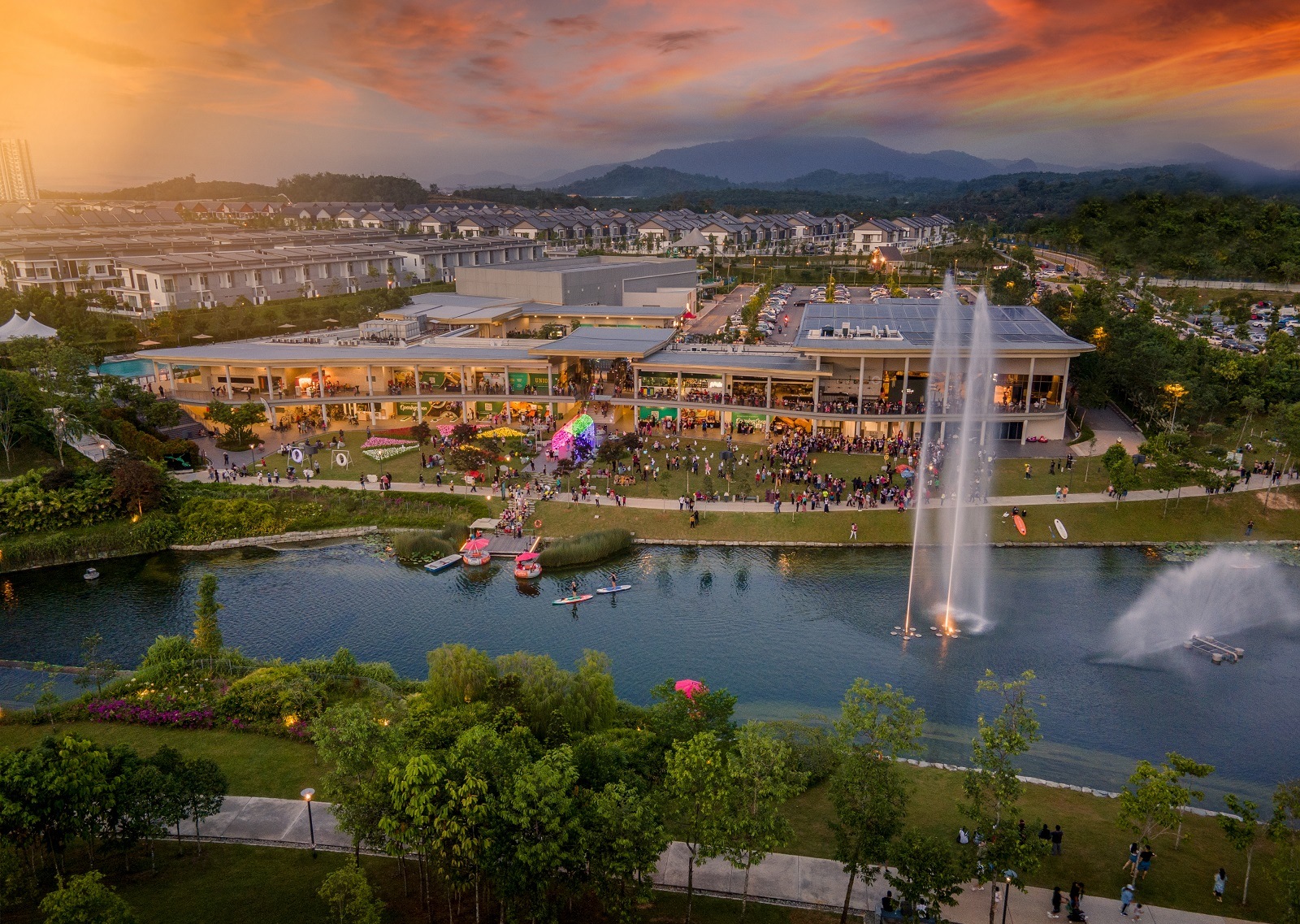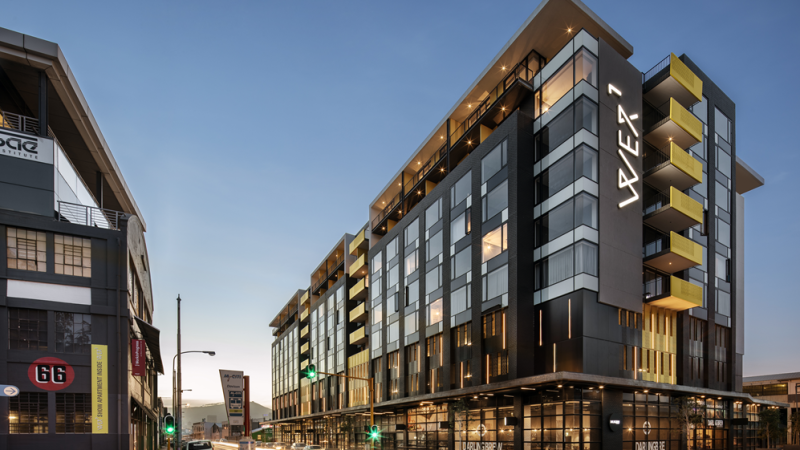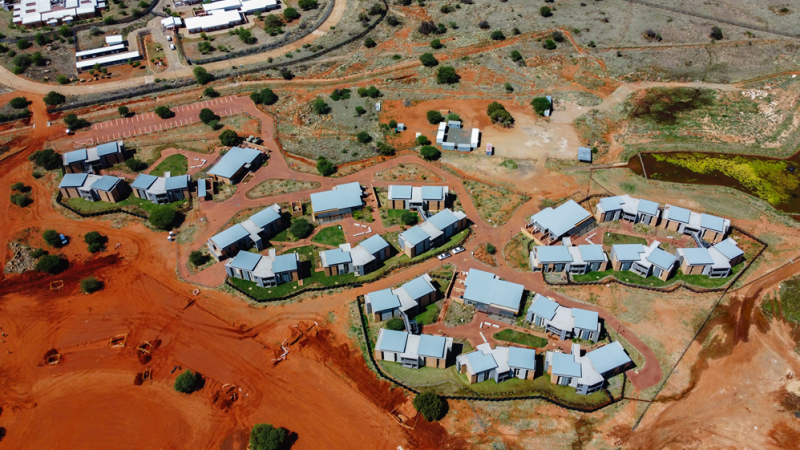Gamuda Land is the property arm of Gamuda Berhad, an engineering, property and infrastructure company based in Malaysia. As one of the largest Malaysian infrastructure companies, Gamuda has a proven track record of delivering innovative breakthrough solutions worldwide that follows a spectrum of experience and expertise in engineering and construction.
“Beyond engineering and construction, Gamuda Land also has made its mark in the real estate scene on a global scale,” says CEO Chu Wai Lune. “As a town maker, we have brought communities together through sound master planning, innovative design and sustainable community building. We have built more than 52,000 properties and covered 8,364 acres globally across 11 townships and 11 vertical communities. These properties make up a gross development value of more than US $22 billion.”
Across the world
The company’s growing portfolio of award-winning developments covers Malaysia, Vietnam, Singapore, and more recently Australia and the United Kingdom. In Vietnam, a key market for the company, Gamuda Land has three ongoing projects in Greater Ho Chi Minh City – Celadon City, Artisan Park and Elysian, and one in Hanoi – Gamuda City.
 “Continuous expansion in Vietnam is an important strategic move for us. We have a team of about 100 staff, of whom some 85% to 90% are local Vietnamese. Having been in Vietnam for 16 years, Gamuda Land works very closely with the local communities and the government, and has very good local knowledge of the market.”
“Continuous expansion in Vietnam is an important strategic move for us. We have a team of about 100 staff, of whom some 85% to 90% are local Vietnamese. Having been in Vietnam for 16 years, Gamuda Land works very closely with the local communities and the government, and has very good local knowledge of the market.”
Australia and the United Kingdom represent more recent market penetrations. In Australia, the focus will be on building a strong pipeline of residential projects over the next five years, with 1,000 apartment units
The recently launched, The Canopy on Normanby is located approximately 1.2km from the Melbourne Central Business District, in an up-and-coming precinct within the Fishermans Bend, Australia’s largest urban renewal project covering approximately 480 hectares in the heart of Melbourne. Home to 213 units of one, two or three-bedroom apartments planned over 20 levels, The Canopy will feature a host of green building features as well as incorporating biophilic designs that will connect residents with nature. Besides this ongoing project, another is in the pipeline.
Meanwhile, in the UK, Gamuda Land’s West Hampstead Central development features architectural design that is inspired by the area’s vernacular mansion blocks, paying tribute to both English heritage as well as contemporary design.
Its second development in Aldgate, is a 90:10 joint venture between Gamuda Land and YOO Development Ltd, comprises a residential block with a micro-living concept.
“While we have been actively launching residential properties, we are not forgetting commercial property opportunities. We anticipate demand for sustainable office buildings will increase as more corporations adopt ESG (environmental, social and corporate governance) and will be looking to house their corporate offices in sustainable developments. This is where our expertise in green building design comes into play,” says Mr Chu, affirming that expanding internationally is consistent with Gamuda Land’s five-year business plan.
Cementing Sustainability as Its Key Agenda
The company stands out for many reasons, not just for its aggressive growth. Mr Chu says: “As one of the early adopters of Environmental, Social and Corporate Governance (ESG), our focus as a company was further defined with a clear set of targets to map our path to the green economy.”
“Incorporating ESG attributes into our corporate strategy is not foreign to us. Our sustainability journey began in 1995 when we developed our first township, Kota Kemuning in Malaysia. When sustainability was not yet a widely adopted approach, we were already implementing sustainable landscaping methods and starting to build a team for good township management, to make sure our developments can stand the test of time.”
He adds that in 2021, management has formulated the Gamuda Green Plan, a comprehensive framework that commits the entire Group to reduce direct and indirect greenhouse gas emissions by 45% in 2030. “It is our commitment to making the maximum impact when it comes to climate action. As a town maker, mindful master planning and good designs are where we know we can make a difference.”
Examples of this approach include Gamuda Land introducing a series of biophilic designs that not only focus on greenery but also natural lighting, ventilation, spatial qualities and use of natural materials, fully in line with global Green Certifications such as BREEAM (Building Research Establishment Environmental Assessment Method) and Green Star.
“We have also set the goal of planting one million trees and saplings by 2023. To date, we have nurtured more than 600,000 trees, equivalent to about 61% of total trees to be planted under the #OneMillionTrees movement,” he adds.
Mr Chu points out that the company is looking at novel methods and approaches, such as the Digital Industrialised Building System (IBS) that is expected to be the future of construction. “As part of our roadmap, Gamuda Land will be adopting 100% Digital IBS across landed linked homes and high-rise developments in Gamuda Land, bringing about value engineering from a digital ecosystem perspective, with a variety of precast products suitable for residential and commercial properties.”
Powered by People
The company invests significantly in management and leadership training as well as in enhancing the technical skills of its workforce to be able to undertake its infrastructure and property development projects with optimal efficiency and safety.
“We continue to identify good talent and move it up the value chain as part of our succession planning,” says Mr Chu. “While doing so, we take into consideration diversity and equal opportunity at the workplace where we now have a good balance of experienced and young talented staff in various portfolios across genders.”
“Vision and direction, and equipping the team with the right capabilities are important, as is building a reliable supply chain. When establishing a new region, we strive to find local trusted partners and then stick with them – scale up rather than put out to tender every time.”
The human factor is considered in a wider context – at a group level, Gamuda has established the Yayasan Gamuda (Gamuda Foundation), which oversees charitable efforts for community investments and people development with a focus on educational aid and empowering social enterprises for community improvement.
These include training and placing young adults with autism into companies that embrace diversity and inclusion, and scholarships not only for high-achieving students but also for leadership training and job placement within the Gamuda Group. Furthering commitments to scaling up community outreach efforts, the foundation also has a special focus on supporting indigenous people through various programmes.
Ambitious Plans
Mr Chu affirms that the company’s growth trajectory is set to continue. In 2022, Gamuda Land achieved close to US $1 billion in sales and is aiming at US $2 billion in the next 5 years. This would represent a compound annual growth rate (CAGR) of 25%.
He notes that the focus will remain on growing the business in existing territories. “We are looking at three main areas: a 50-50 ratio between Malaysian and overseas projects in international markets with plenty of opportunities such as Australia, the UK and Vietnam.”
“We are also set to create an optimum balance between our township developments and bite-sized quick turnaround projects (QTPs). And last but not least, we would also like to balance our property portfolio across the sphere of commercial and industrial,” he concludes.










